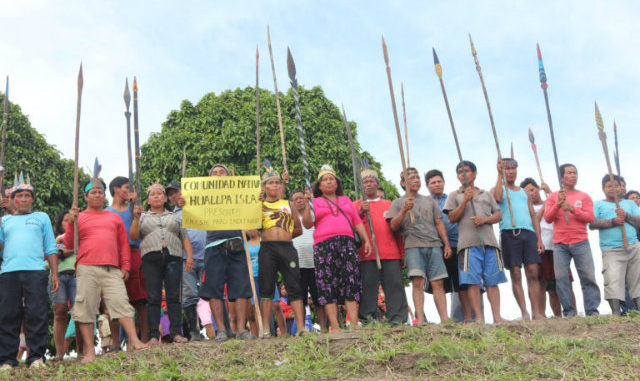
LIMA – Last week, villagers in the Peru Amazon shut down 50 oil wells in protest against the negotiations of a new oil field development contract between Lima and Canadian Frontera Energy Group.
The Amazon communities, who have been complaining for years about the environmental pollution from oil production are angered that the government of the country, led by President Pedro Pablo Kuczynski, has ignored an indigenous rights law passed in 2011.

The law stipulates that the government must consult indigenous communities before it approves any plans that might affect them. Among the demands that the communities have brought in front of the government are a clean-up of Block 192—the subject of the new contract negotiations—as well as better access to healthcare and education.
The Ministry of Culture, which is responsible for upholding the prior consultation law, last week rejected the indigenous communities’ request to enforce it with regard to the Block 192 negotiations, which prompted the protests.
Frontera has been developing Block 192 for two years, but now this first contract’s expiry date is drawing near, and the company is in talks on a longer-term deal. The field, which is the biggest in the country, produced 9,500 barrels of oil daily as of this August, Reuters reported, citing official data.
More disruptions are likely in the coming days. After the protesters seized control over a power plant and several oil tanks, there are plans to shut down more wells in the controversial block as well as an airport, according to an official from indigenous federation Fediquep.

Oil industry pollution in northern Peru is a grave problem for local communities, which includes river and lake contamination, soil and food contamination, and an extensive range of health problems caused by this contamination. The cost of cleaning up the mess has been estimated at over $1 billion.
Peru is the oldest oil producer in South America, though not the largest one. As of June this year, its average daily output was 44,280 barrels of crude.



